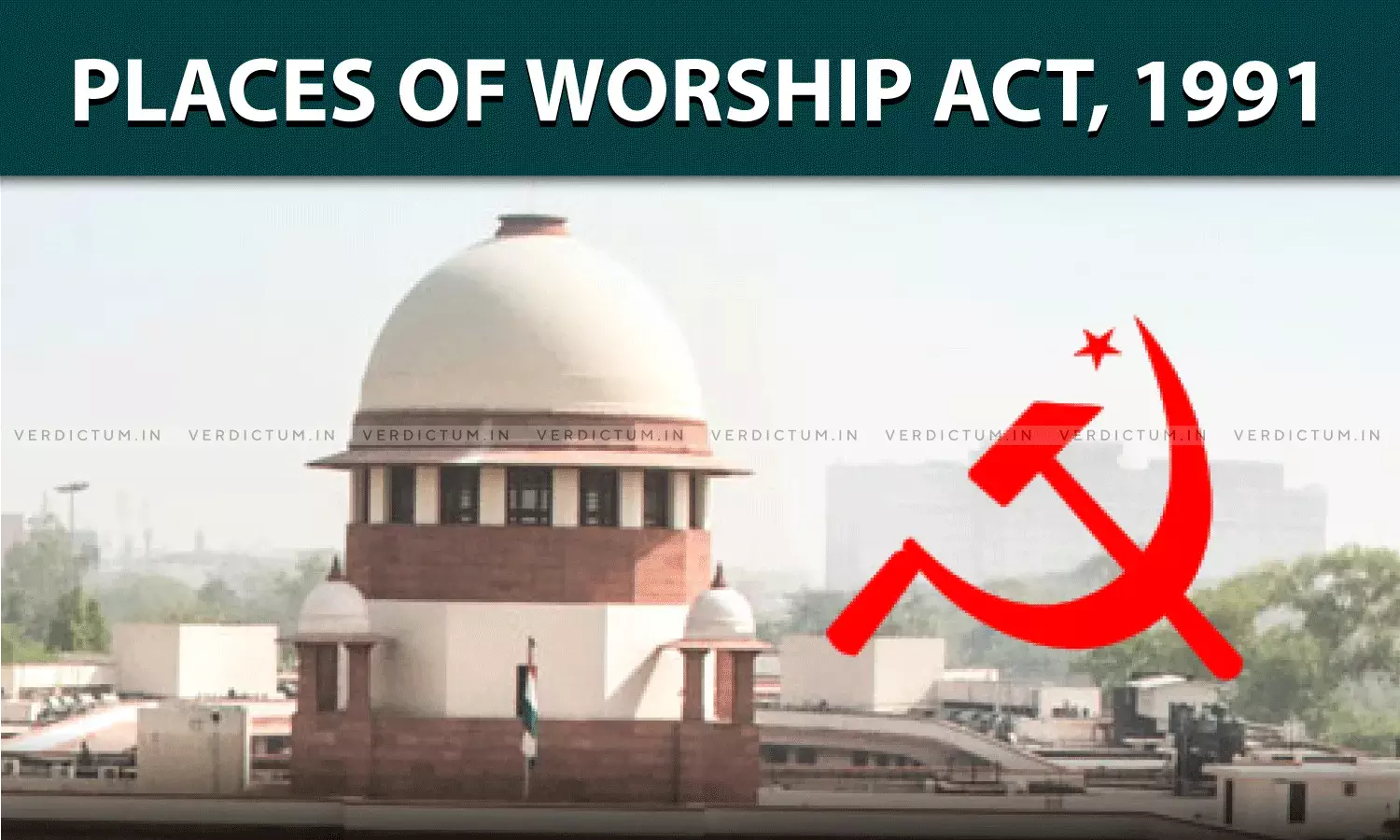Destruction Of Temples By Invaders Is Not Universally Accepted Claim, Hindu Rulers Have Destroyed Buddhist Monasteries: CPI Moves SC Supporting PoW Act
The Communist Party of India (CPI) has filed an application in the Supreme Court seeking to intervene in the matter of Ashwini Kumar Upadhyay v. Union of India & Ors., a writ petition challenging the constitutional validity of the Places of Worship (Special Provisions) Act, 1991.
Pertinently, on December 13, the Apex Court had ordered, "Whatever is there, please file a reply. Give petitioners a copy. You can't make available an e-copy of your reply on the internet. Till reply comes, we can't hear. Anybody who has an issue, we will take it up. Till the next date of hearing, no further suits can be filed or registered."
In its application, filed through its General Secretary, the CPI has asserted that the Act is a constitutionally valid law consistent with India's secular and democratic ethos. The party emphasized that the legislation plays a critical role in upholding secularism, equality, and religious harmony as guaranteed under Articles 14, 15, and 25 of the Constitution.
In its application filed through its General Secretary D. Raja, the CPI states, "That the Applicant contends that historical narratives—especially those invoked by the petitioner—are highly contested. History is interpreted differently by various historians based on their sources, biases, and methodologies. Consequently, the petitioner’s claims about the destruction of religious sites by “invaders” rely on one version of history that is not universally accepted".
"For example, while the petitioner references the destruction of Hindu temples by invaders, it is equally true that in different periods, Hindu rulers themselves destroyed Buddhist monasteries and constructed temples over their ruins. This further undermines the reliability of the petitioner's historical claims and highlights that historical accounts cannot be simplistically used to divide communities or justify contemporary legal actions," the application states.
The Act, which maintains the status quo of religious places as of August 15, 1947, has been challenged by the petitioner on grounds of constitutional validity. The CPI, however, contends that the law prevents communal conflicts by prohibiting alterations to the religious character of places of worship, thereby fostering national unity and social cohesion.
The CPI also highlighted that the Act aligns with previous judicial pronouncements, including the Supreme Court's landmark judgment in M. Siddiq (D) Thr. Lrs. v. Mahant Suresh Das & Ors.(Ayodhya Judgment), where the Court upheld the principle of non-retrogression in matters of religious harmony.
In its submission, the CPI criticized the petitioner’s reliance on contested historical narratives, labelling them as subjective and polarizing. The party argued that such narratives, often one-sided and oversimplified, cannot form a valid basis for legal action and risk fomenting communal discord.
The CPI further noted that the petition challenging Sections 2, 3, and 4 of the Act is time-barred, as it contests a law enacted over three decades ago. The party underscored that the Act is essential to ensure that religious identities are not manipulated for political or divisive purposes.
The application also called for the preservation of India’s secular fabric and warned of the far-reaching consequences of overturning the Act, including heightened communal tensions and destabilization of social harmony.
In its prayer, the CPI has sought permission to intervene as a respondent in the case to present its arguments and assist the Court in adjudicating the matter. The party also expressed its intent to file written submissions to further substantiate its stance.
The Court is yet to decide on the intervention application, with the matter scheduled for further hearing in the coming weeks.
Cause Title: Ashwini Kumar Upadhyay v. Union of India & Ors.












